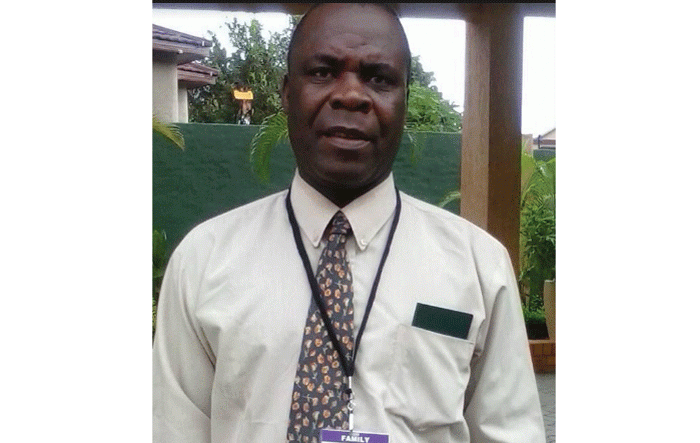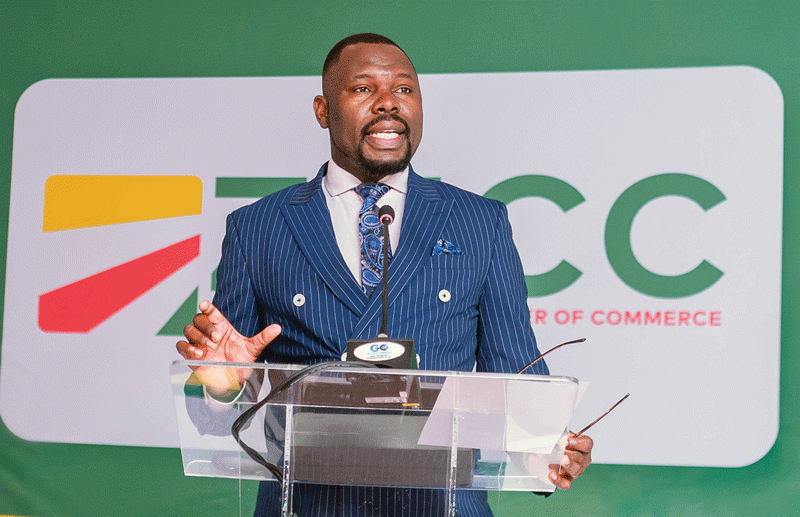
DEATH has robbed Bulawayo of one of its finest sons Bulisani Ncube who passed away on June 3 afternoon at Mpilo Hospital.
Chris Raymond posits that as much as good men may die, death cannot kill their names. This fits well with the situation we find ourselves in as citizens of Bulawayo, especially those of us who knew and were close to him.
Ernest Hemingway too asserts that every man’s life ends the same way, but it is only the details of how he lived and how he died that distinguish one man from another.
I got to know Ncube in 2008 when he was the Matabeleland regional manager for Zimbabwe National Chamber of Commerce (ZNCC). Our offices were diametrically opposite to each other.
He recruited me to join ZNCC which I did that same year. At that time I was also the MDC Bulawayo provincial secretary for information and publicity. I later discovered that he was also interested in politics. Although not active, he liked political debates.
At that time the country was polarised in such a way that it was either the ruling party or the opposition which had two formations at that time.
Ncube was not the kind of person who would agree or accept anything because it was from the political party he sympathised with, but would criticise it more than the party he did not like. Ncube would say anything including what some of us in politics felt was treasonous. But he would stick to his viewpoint.
We were to be deployed to Midlands province by Parliament’s Constitution Select Committee (Copac) as rapporteurs in 2010 and spent three months collecting data during outreach programmes. I had to intervene on many occasions after he had crossed paths with members of political parties who were not tolerant to diverse views.
- Revisiting Majaivana’s last show… ‘We made huge losses’
- Edutainment mix: The nexus of music and cultural identity
- ChiTown acting mayor blocks election
- Promoter Mdu 3D defends foreigners 30 minute set
Keep Reading
It took those who knew him to tolerate his behaviour because in his vocabulary there was no sacred word and there was no sacred individual. He treated all human beings the same, which made him the darling of many while others hated him.
My direct confrontation with him was in Gokwe during our outreach programme when his wife (now late) visited, actually they drove together from Bulawayo. I borrowed his Standard newspaper which I read and returned the following day much to the chagrin of Ncube who reminded me that we were being paid the same amount by Copac, therefore, I should budget for newspapers instead of using his money.
I also reminded him that in Bulawayo he used to read two newspapers daily in my office. As the spokesperson of the party I was buying two newspapers daily, The Chronicle and NewsDay, looking for issues to tackle during the day or respond to.
Ncube would come and read the newspapers. Despite reminding him, he could not back down. He was such a character who would not accept defeat. Knowing him the way I did I had to back down and apologise for returning his newspaper the following day.
Later in the day we were sharing jokes as if nothing had happened, that was Ncube. He worked as a sales executive at Zimnat until he was spotted by a prominent businessman Obert Sibanda who recruited him to be the regional co-ordinator of the National Economic Consultative Forum.
When Sibanda became the regional chairperson of ZNCC, he appointed him regional manager until his unceremonious departure in 2012.
During his stay at ZNCC, he spread his wings and became the co-ordinator of Trans-Limpopo Spatial Development Initiative, a position he held until his death. The Trans-Limpopo Spatial Development Initiative is an initiative to twin Matabeleland cities and towns with South African cities or towns.
Bulawayo is twinned with Polokwane, Gwanda town with Makhado etc. Ncube was very passionate about these twinning arrangements. Before he passed on, he had organised a visit to Polokwane by the mayor of Bulawayo and his delegation for next week.
While many people regarded him as a very stubborn and unco-operative individual, Ncube had a lot of positives as he worked hard for the City of Bulawayo and his contribution to its growth did not go unnoticed.
He deserved to be interred at Lady Stanley cemetery as one of the unsung heroes of the city.
Fare thee well Ncube, go well Bhinya we Nkayi, the City of Bulawayo shall always remember you. I shall always remember you, you were a giant, an unsung hero of Bulawayo.
Rest in peace Bulisani. - Edwin Ndlovu
Journos must be torch bearers of peace
THE Zimbabwe Election Support Network (Zesn) hosted a one-day media training workshop on Violence on Against Women in Elections (VAWIE) and Gender Sensitive Reporting in Harare on June 29, 2023. The objective of the workshop was to inform, educate as well as raise awareness among media practitioners on VAWIE and to build capacities on gender-sensitive media coverage.
Moreso, the workshop was held to examine challenges and opportunities in conflict sensitive and peace journalism during election reporting and offer recommendations collectively no matter what ideology one subscribes to in order to raise awareness on VAWIE.
At least 75 participants including representatives from Chapter 12 commissions — the Zimbabwe Media Commission and the Zimbabwe Gender Commission (ZGC); Zesn board member Farisai Chaniwa; ZimFact editor-in-chief and correspondents, Zimbabwe Broadcasting Corporation programming and news and current affairs team, editors and reporters from Alpha Media Holdings, Zimpapers, Jester Media, AB Communications, Zimbabwe Daily; New Ziana editors; freelance journalists, journalists from 263Chat, Sly Media TV, SABC News, The Observer and a few CSOs working directly with media organisations.
In her welcoming remarks, Chaniwa lamented the proliferation of gender information disorders and implored media practitioners to give equal coverage to male and female political participants. She also urged journalists to practise peace journalism to prevent the incitement of violence while at the same time serving as a conduit for reconciliation.
ZGC chief executive officer Virginia Muwanigwa gave insights into the legislative framework vis-à-vis women’s representation and participation in electoral processes premised on sections 2, 3, 17, 52 and 56 of the Constitution on gender equality and women’s participation.
She implored the media to ensure non-discrimination and equal gender media coverage in all electoral processes for women, persons with disability, youth and the elderly.
The workshop ended with participants engaging in a plenary discussion on experiences of female journalists in electoral reportage facing violence not only from the public but also from their male counterparts who often do not want female journalists to cover issues of elections and politics as it is believed to be a male turf. - Zesn






